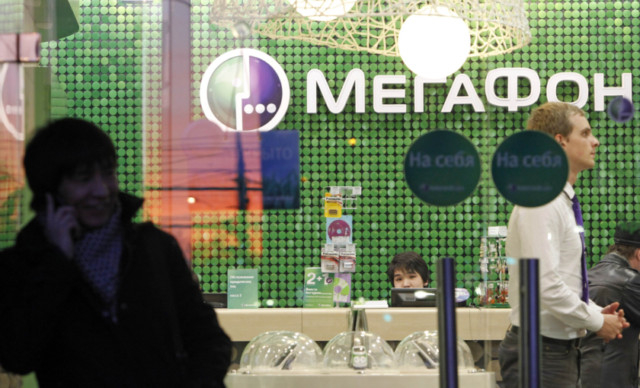
Moscow: MegaFon, Russia’s No 2 mobile phone firm, pitched its $2 billion international stock market float to Moscow-based investors on Friday, amid indications that efforts to fill the order book would go down to the wire.
Sources close to the offering said the final takeup of shares in MegaFon, controlled by Alisher Usmanov, would only be clear early next week after US investors return from the long Thanksgiving weekend.
“The deal is going to get done unless there is some kind of Armageddon on the markets,” one source close to the deal told Reuters. “It’s going to be oversubscribed. The price range is solid.”
MegaFon is seeking to sell global depositary receipts in London and Moscow at between $20 and $25 per GDR, raising $1.7-$2.3 billion and valuing the business at $11.2-$14 billion.
Order books are due to close next Tuesday, with pricing, allocation and trading to begin a day later. US investors will be key to the deal because MegaFon’s main competitors, MTS
and Vimpelcom, are listed in New York.
“We knew this was going to be somewhat of an accelerated bookbuild,” said another source. “It will be more Monday, Tuesday, post-Thanksgiving because the main comparable is listed there and the US guys are driving this.”
Investors have been angling for a discount on MegaFon, though the company would be valued on core earnings multiples broadly in line with its rivals even towards the bottom of the indicative range.
“A discount of around 10 per cent is necessary to make people find room for MegaFon, including by selling MTS,” said one investor. “The deal is not guaranteed yet. It’s 50-50. If they are not greedy, they can make it.”
MegaFon, in which Usmanov took majority control last April, announced its intention to float in October but concerns over corporate governance have repeatedly surfaced after investment bank Goldman Sachs dropped out of the deal syndicate.
The IPO was held up while last-minute changes were made to Usmanov’s plan to fold his vast business interests — including iron ore miner Metalloinvest and a stake in social network Facebook as well as MegaFon — into a holding company called USM Holding.
Britain’s market regulator finally signed off on the issue prospectus after Usmanov struck an agreement with his partners to keep 100 per cent of the votes in USM Holding, rather than transferring part of the voting control to those partners.
One of the partners, billionaire Andrei Skoch, confirmed in an interview with the Financial Times on Friday that he knew individuals who, according to reports, were members of an organised crime group named after Moscow’s suburb of Solntsevo.
“I can’t say they were bandits. They were ordinary businessmen,” the 46-year-old co-owner of Metalloinves told the Financial Times.
MegaFon held road shows for the issue in New York and London before coming to Moscow, where more than 50 investors were treated to a sit-down lunch and slide-show presentation at a five-star hotel a few minutes’ walk from the Bolshoi Theatre.
Emerging from the event, one portfolio manager said his fund had not yet decided whether to invest in MegaFon, citing the patchy record of previous Russian IPOs.
“We can buy in the IPO — but we can buy later too,” he said, expressing little concern over the governance issues that have received extensive recent media coverage.
In the IPO, Nordic telecoms group Teliasonera will reduce its 35.6 per cent holding, while MegaFon will sell treasury stock to cut debt. If organisers take up an over-allotment option, the free float will be around 17 per cent.
More critical for investors is valuation and the promise of strong future dividends, factors that could be vital in comparison to MTS, which has pledged to raise its payout and has a larger free float.
Although MegaFon’s rivals have sometimes stumbled in their attempts to expand abroad, some investors view its exclusive focus on the maturing Russian market as a relative weakness.
Both MTS and Vimpelcom trade on an enterprise value — the cost of buying a company’s equity and debt - of around 4.4 times estimated 2012 earnings before interest, taxation, depreciation and amortisation, a proxy for cash flow.
“MegaFon is a pure Russia play, which would in the past have commanded a premium to diversified telecoms,” said Vyacheslav Pivovarov, chief executive at Altera Capital, a Moscow-based long/short equity fund.
“But with 160 per cent market penetration, it is no longer a growth industry and hence the major attractiveness is in capital return to shareholders.”












